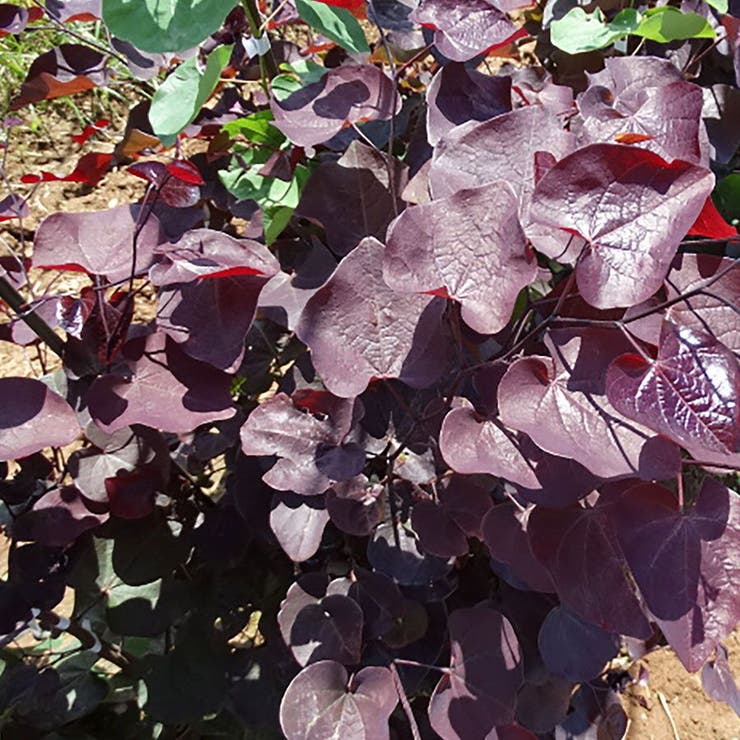Cercis Black Pearl™ Redbud


Your zip code
Description / Cercis Black Pearl™ Redbud
Cercis Black Pearl™ is a native deciduous understory tree offering multi-season interest, grown for its lovely architecture, dark leaf color, and extravagant spring bloom. Extremely floriferous, this small tree puts on a sensational show in spring, flowering in showy clusters of charming pea-like lavender-pink flowers on bare branches, before the foliage emerges. Dry, flattened, bean-like seedpods follow in mid to late summer. The nectar-rich flowers are a food source for bees and early season butterflies, and the seeds sustain several species of songbirds throughout fall and winter. Its graceful canopy of large, heart-shaped, maroon-colored leaves holds its color through summer and typically turns attractive shades of chartreuse yellow in fall.
A Cercis canadensis species, Black Pearl resulted from a controlled cross between C. canadensis 'Ruby Falls' and C. canadensis 'JN2' THE RISING SUN. The tree has a moderate to vigorous growth rate and a compact, upright, freely branching habit with relatively short internodes and an overall shape that is broad, rounded, and oval. Redbud trees are great specimen, shade, and patio trees, but they are especially eye-catching in group plantings.
Black Pearl grows best in sunny to dappled sun locations with organic, moist, well-draining soil having an acidic or alkaline pH, but it tolerates most soils, including loam, sand, and clay. In hot climates, some shade may be required for best performance. Adding mulch around the tree's base will help keep roots moist and cool. The plant is black walnut resistant.
A native tree, Cercis Black Pearl is indigenous to North America, from Connecticut to New York to southern Ontario and the Great Lakes south to West Texas and Florida. Native plants are not only beautiful but also environmentally friendly. Naturally adapted to the climate and soil conditions of the region, they thrive without fertilizers or extra watering, once established. They also act as natural pest controls, reducing the need for pesticides in the garden. Landscaping with native plants promotes biodiversity and provides shelter and quality food for wildlife and pollinators, bringing gardens to life.
Product Details
| SKU | 29154 |
|---|---|
| Item Form | 2-Gallon |
| Genus | Cercis |
| Species | canadensis |
| Variety | 'JN16' |
| Plant Patent | PP28627 |
| Product Classification | Trees |
| Habit | Upright |
| USDA Zone Low | 5 |
| USDA Zone High | 9 |
| Sun / Shade | Full Sun, Part Shade |
| Moisture Level | Moist, well-drained |
| Soil Type | Clay |
| Bloom Color | Pink |
| Bloom Season Start | Early Spring |
| Bloom Season End | Early Spring |
| Foliage Color | Purple |
| Mature Width in Inches | 300.00 |
| Mature Height in Inches | 240.00 |
| Special Features | Bird Lovers, Butterfly Lovers, Easy Care Plants, Fall Color |
| Uses | Beds, Fall Color, Specimen |
| Zone | 5, 6, 7, 8, 9 |
| State Shipping Restrictions | GU, HI, PR, VI |

